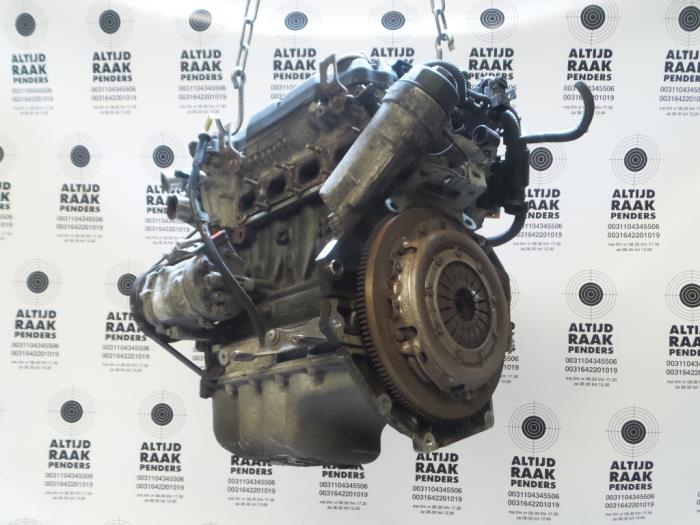Engine Purchasing Specialist Tips on Selecting the Right Engine for Your Certain Demands
Choosing the appropriate engine for your particular demands entails an intricate interplay of aspects that go beyond simple horsepower numbers. By delving right into the ins and outs of power versus performance, evaluating fuel rankings, and budgeting for long-lasting prices, one can genuinely maximize their engine choice.
Power Vs. Effectiveness: Discovering the Equilibrium
When choosing an engine, it is critical to strike a balance in between power and effectiveness to meet your specific demands successfully. Power describes the engine's capability to generate energy for propulsion, establishing variables like velocity, pulling capacity, and overall efficiency - Opel Corsa 1.4 Engine Price. On the various other hand, effectiveness relates to exactly how well the engine utilizes fuel to produce power, affecting variables such as gas economy and ecological kindness
Achieving the right equilibrium in between power and performance is necessary due to the fact that an engine that is as well powerful may take in excessive gas, bring about greater operating expense and unneeded pressure on the environment. On the other hand, an engine that prioritizes performance over power may cause slow efficiency, especially popular situations like lugging heavy loads or driving uphill.
To make an informed decision, think about elements such as your normal driving problems, the designated usage of the car, and your individual preferences. By examining your requirements and top priorities, you can choose an engine that strikes the perfect equilibrium in between power and performance, ensuring ideal performance while decreasing ecological impact and operating costs.
Comprehending Engine Dimension and Kind
To even more improve the option process of an engine that strikes the ideal balance between power and performance, it is necessary to dive right into the ins and outs of comprehending engine dimension and type. Engine dimension refers to the total volume of air and fuel that can be pushed through the engine cylinders.
In addition, engine type plays a crucial role in establishing the efficiency features of an engine. Common engine kinds consist of inline engines, V engines, and rotating engines, each with its unique benefits and downsides. The engine type impacts elements such as the engine's dimension, weight distribution, and power shipment. Recognizing the interplay in between engine dimension and type is crucial in selecting an engine that aligns with your certain requirements and priorities, whether it be power, effectiveness, or an equilibrium of both.

Consider Your Vehicle's Needs
If you are looking for an engine for a sturdy truck that will be utilized for towing, you will certainly need an effective engine with high torque capabilities. On the other hand, if you are choosing an engine for a portable vehicle mostly made use of for city travelling, gas performance might be an extra vital navigate to this site aspect to take into consideration.
If you often drive in uneven or hilly locations, a robust engine with good climbing up power will certainly be required. By aligning the engine specifications with your car's requirements, you can ensure that your lorry runs effectively and fulfills your performance assumptions.
Examining Fuel Efficiency Rankings
Examining fuel performance scores is a crucial aspect of picking the ideal engine for your car, guaranteeing price financial savings and environmental sustainability. Gas effectiveness ratings, generally gauged in miles per gallon (MPG) for gas engines or kilowatt-hours per 100 miles (kWh/100 miles) for electrical engines, suggest how much an automobile can travel on a details amount of fuel or electricity. Higher MPG or reduced kWh/100 miles worths represent a lot more efficient engines, converting to minimized fuel prices and lower carbon discharges.
When assessing fuel performance rankings, consider your driving practices and requirements. An extremely fuel-efficient engine can result in substantial cost savings over time if you commute long ranges daily. Additionally, contrast different engine alternatives within the same automobile course to determine one of the most economical selection. Elements such as engine dimension, weight, the Related Site rules of aerodynamics, and hybrid or electric capacities can all affect fuel efficiency.
Budgeting for Long-Term Prices
Strategically intending for long-lasting expenses is essential when selecting an engine, ensuring economic sustainability over the automobile's lifespan. While the first acquisition cost of an engine is a significant variable, it is critical to think about the Extra resources long-term prices connected with maintenance, fixings, and fuel consumption.
In addition, researching the schedule and price of replacement parts for the selected engine is vital in budget plan planning. Engines with conveniently available and cost effective components can substantially impact lasting maintenance expenditures. Additionally, taking into consideration the engine's toughness and expected life expectancy can help prevent unexpected substitute expenses in the future. By thoroughly budgeting for these lasting expenses and factoring them into the decision-making procedure, individuals can choose an engine that not only satisfies their immediate demands but likewise continues to be affordable throughout its life-span.
Conclusion
In final thought, choosing the ideal engine for your details demands calls for stabilizing power and efficiency, comprehending engine size and type, considering your automobile's demands, examining gas effectiveness scores, and budgeting for long-term costs. By thoroughly thinking about these aspects, you can make sure that you select an engine that satisfies your requirements and offers optimal performance for your car.
To better fine-tune the selection process of an engine that strikes the optimum balance between power and effectiveness, it is important to delve right into the complexities of understanding engine dimension and type. Engine size refers to the complete volume of air and fuel that can be pushed with the engine cylinders. Typical engine kinds include inline engines, V engines, and rotary engines, each with its one-of-a-kind benefits and disadvantages. Understanding the interaction between engine dimension and type is vital in picking an engine that aligns with your details requirements and priorities, whether it be power, performance, or a balance of both.

Comments on “Discover Competitive Opel Corsa 1.4 Engine Price Options at Car Parts Market”